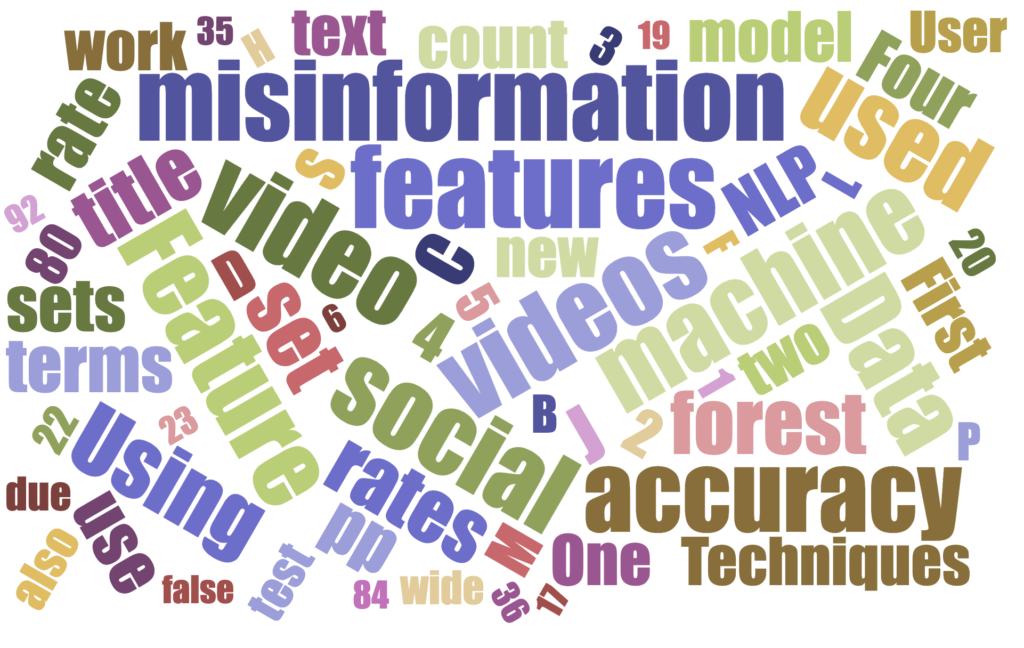My colleagues and I recently published the paper, Classifying Vaccine Misinformation in Online Social Media Videos using Natural Language Processing and Machine Learning, which was presented at HICSS 57 in Oahu, Hawaii. The paper presents on machine learning approaches to detecting misinformation in social media videos related to vaccines. Below is the tag cloud, abstract and full citation of the research.

Abstract
The spread of information through online social media videos is one of the most popular ways to share and obtain information, while at the same time the spread of misinformation across these same social spaces has become a significant concern affecting human well-being. Being able to detect this misinformation before it spreads is becoming more and more desirable for many social media platforms. This research focuses on exploring the accuracy of detecting misinformation across two social media platforms, YouTube and BitChute. This involves the classification of video data into two types: genuine information or misinformation. More specifically, this research generates additional metadata embedded within online videos related to the COVID-19 vaccination. Using natural language processing (NLP) we extract medical subject headings (MeSH) terms from video transcripts and classify videos using four machine learning techniques including naïve Bayes, random forest, support vector machine, and logistic regression. Implementation of each classifier is presented, and the accuracy of each technique is compared and discussed.
Reference
S. Schmidt, B. Thoms, E. Eryilmaz, J. Isaacs, “Classifying Vaccine Misinformation in Online Social Media Videos using Natural Language Processing and Machine Learning,” Proceedings of Hawaiian International Conference on System Sciences (HICSS 57), January 2-6, 2024.
